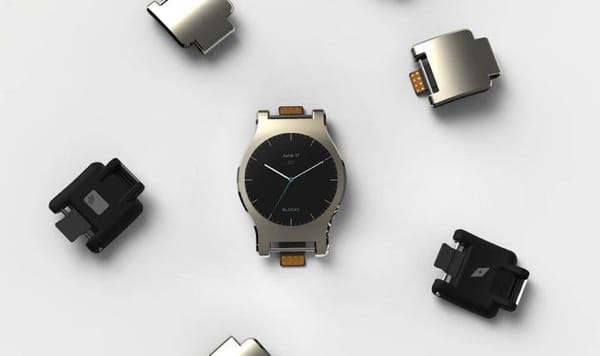Would you buy a modular smartwatch?

We’ve talked recently about modular smartphones, in particular Project Ara – Google’s somewhat experimental phone that allows you to replace that parts that you need. For example, you can swap out the camera for a more advanced model or change the CPU module for a more powerful one. This invention, along with another project called Phonebloks, appears to herald the start of a new movement – modularity.
Modular smartwatches
Modularity in terms of phones is a rather new concept, but many people have already been preaching the modular mantra for years. PC gamers have long been obsessed with changing their hard drives, graphics cards, and adding more memory. The whole reason for this is not just tinkering under the bonnet which is fun in itself, but to optimise their systems to achieve the best possible experience. Anyone that has a desktop PC and has ever put in a new graphics card will be familiar with the sense of satisfaction that comes from constantly upgrading.
Besides gaming rigs and Google’s smartphone designs, perhaps modularity could extend to other gadgets in future. The smartwatch industry is still in its early stages, but companies such as Apple and Google, as well as a whole host of third party tech firms, are betting big on wearable tech.
Imagine a modular smartwatch that allowed the wearer to pick and choose the components they want, or swap out parts when they become outdated.
A company called Blocks is already working on such ideas, and working towards crowdfunding their project – a smartwatch that lets you swap in and out the parts you want such as a heart rate module, fingerprint scanner, or GPS unit.
As Apple keeps reminding us, wearables are uniquely person devices. So being able to customise your smartwatch beyond just changing the screens is an attractive proposition. Another reason to go modular is the longevity factor – new products are released all the time, so the ability to just replace a part with a more up to date component would probably work out cheaper in the long run while also leading to less environmental waste. Customisation and sustainability are thus the two main reason to choose a modular device.
However, those in the industry are also working on ‘block stores’ – the concept is the same as an app store, in that anyone can build custom blocks and sell them. That should create hundreds if not thousands of unique components that do all sorts of things we’ve not even dreamt of yet.
It’s still early days for smartwatches, and even more so for the up-and-coming modular designs that are just coming out of the research labs. But who knows, perhaps in a couple of years time we’ll be building our own fashionable and highly functional modular smartwatches?







